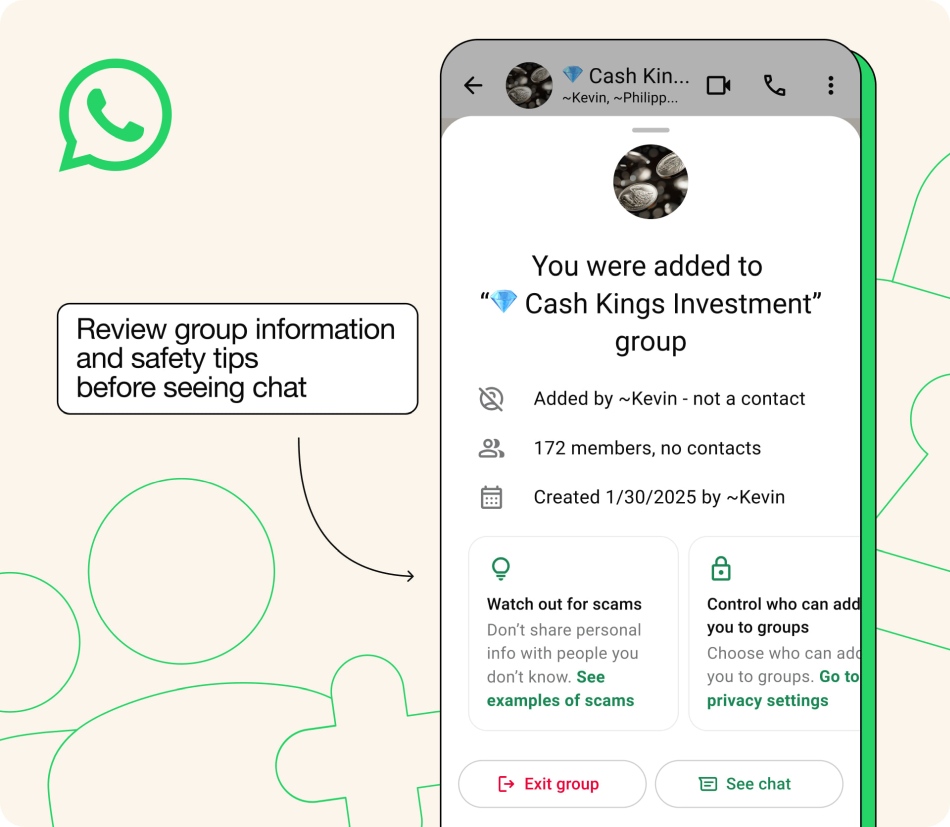
WhatsApp has introduced a suite of new tools aimed at helping users identify and avoid scams, following the takedown of over 6.8 million accounts tied to global scam operations in the first half of 2025.
The announcement highlights the growing threat posed by sophisticated criminal scam centers, particularly those operating out of Southeast Asia. These centers, often associated with forced labor and organized crime, run large-scale fraud campaigns across multiple platforms in parallel, making detection and disruption more complex.
Meta’s security teams, working in collaboration with OpenAI and other partners, recently dismantled one such cross-platform scam campaign that had been traced back to a scam center in Cambodia. This specific operation began by using ChatGPT to craft convincing introductory messages, which linked to WhatsApp chats. Once the target engaged, they were moved to Telegram, where they were assigned simple digital tasks, like liking TikTok videos, in exchange for fake payouts. As trust was built, the scam escalated, eventually pressuring victims to deposit cryptocurrency under the promise of greater returns.
WhatsApp, owned by Meta, remains one of the world’s most widely used private messaging platforms, with over 2 billion users globally. Its reach has also made it a frequent target for abuse by scammers who exploit the platform’s end-to-end encryption and personal nature of messaging to gain victims' trust.
According to Meta, scam campaigns often span across services, including WhatsApp, SMS, Telegram, TikTok, and even cryptocurrency exchanges, making it difficult for any one platform to see the entire fraudulent operation. To counteract this, the company is investing in both enforcement and education.
New safety features rolling out on WhatsApp include:
- Group Safety Overview: When users are added to a group by someone not in their contacts, WhatsApp will now display a safety prompt containing group information and guidance. Users can exit the group without opening the chat, and notifications will be silenced until they opt to stay.
- Chat Initiation Warnings: WhatsApp is testing features that provide contextual alerts when a user starts messaging someone not in their contacts, helping them assess potential risks before engaging.

WhatsApp users are advised to always take a moment before responding to unexpected or high-pressure messages. Analyze whether the request is logical, or if it’s a common scam red flag, such as needing money urgently or offering unusually high rewards. Finally, confirm the sender’s identity using another communication method whenever possible.
While the app continues to improve automated detection systems, Meta underscores that user vigilance remains critical. Many scams begin outside WhatsApp and then migrate to it, often disguised as job offers, investment opportunities, or urgent pleas from fake acquaintances. Hence, it is recommended to avoid engaging with unsolicited messages from unknown contacts, and never send money or share sensitive information with them through the app.







Leave a Reply